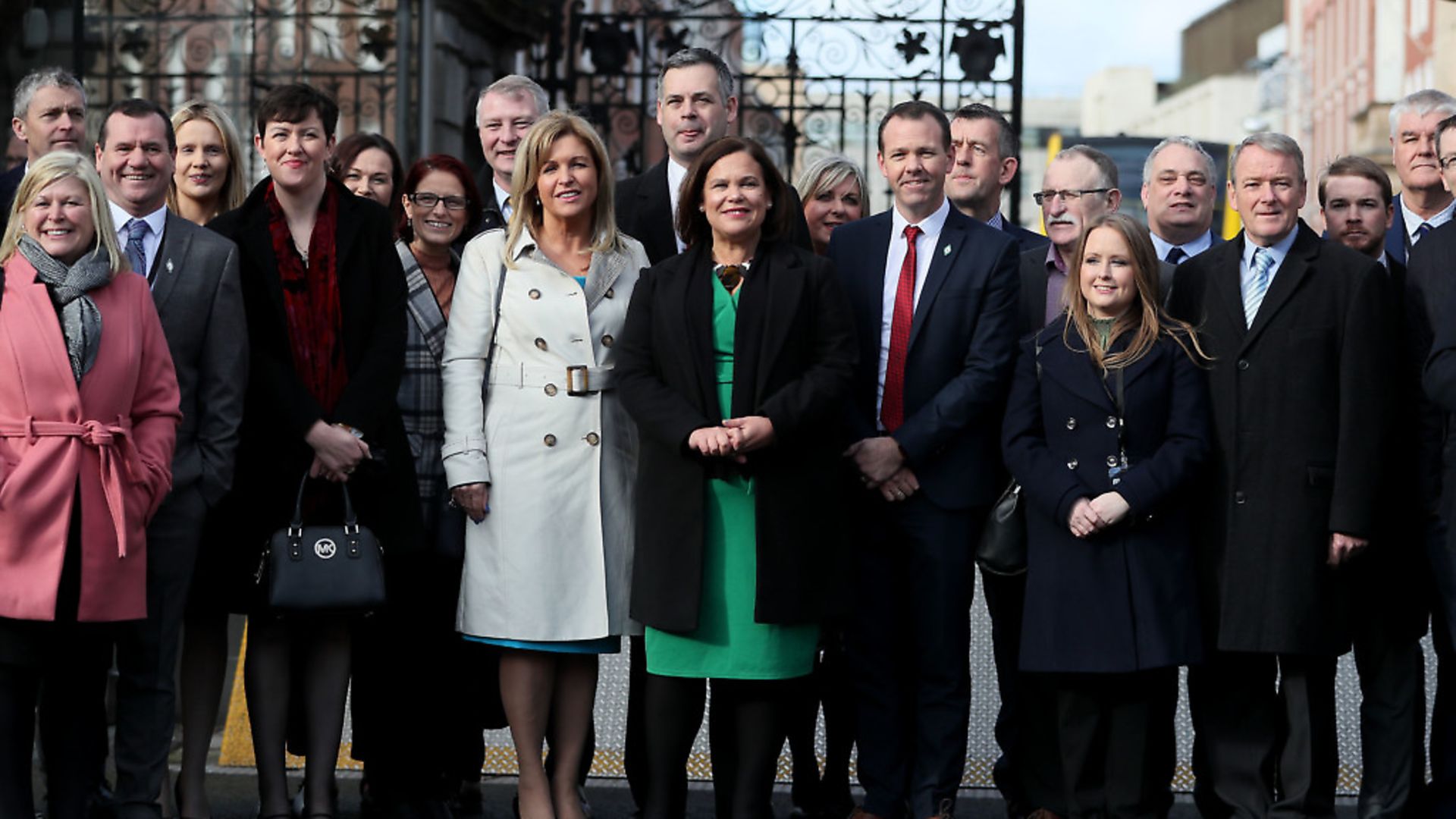
Mary C. Murphy assesses the likely impact on Brexit of Sinn Féin’s election success.
Political hostility, historical antipathy and considerable incompatibility on both policies and principles has traditionally sullied the relationships between Sinn Féin and Ireland’s two other largest parties, Fianna Fáil and Fine Gael. But while they are reluctant to share power with Sinn Féin, the current political arithmetic of the new parliament suggests the next Irish government will require its participation.
So what does this mean for Ireland’s relationship with the EU, and its upcoming post-Brexit trade negotiations with the UK? Decidedly to the left of the political spectrum, Sinn Féin’s position on the EU has shifted over time. In its early days, the party was ardently anti-EU. For reasons of both national sovereignty and anti-capitalism, it stridently opposed Irish membership of the EU in 1973. In the intervening years, the benefits of EU membership were not lost on Sinn Féin. The single market, access to the Common Agricultural Policy, structural fund assistance and EU support for the Northern Ireland peace process led to some moderation of the party’s original objections. Ongoing opposition to closer and deeper EU integration was nonetheless evident. The party campaigned against various EU treaty reforms, including Maastricht, Nice and Lisbon.
Sinn Féin’s decision to support and campaign for Remain during the 2016 referendum might appear out of sync with its soft euroscepticism, however, this position was largely motivated by homegrown political and constitutional concerns. Sinn Féin was concerned that Brexit could undermine north-south relations on the island of Ireland – a particularly important outcome of the peace process for Irish nationalists. There were also concerns it would re-policitise the Irish border and destabilise politics and community relations in Northern Ireland.
Motivated by Northern Ireland’s 56% Remain vote, the party argued vociferously against any Brexit deal which threatened to re-impose a border between Northern Ireland and the Republic. The Sinn Féin position was backed by a strongly-supportive EU and its chief Brexit negotiator, Michel Barnier, consistently maintained that: “Ireland’s interest is the EU’s interest”.
In the Republic, a striking level of cross-party consensus has defined Ireland’s approach to Brexit. All Irish political parties, including Sinn Féin, supported the approach to Brexit taken by Fine Gael-led governments. Testament to this is the fact that Brexit simply did not feature as an issue during the election. An exit poll suggested that just 1% of Irish voters were concerned about Brexit.
The withdrawal agreement meets Sinn Féin’s central Brexit objective to maintain an open border on the island of Ireland, albeit using a complex formula where Northern Ireland is effectively part of the EU for the purposes of customs and free movement of goods.
From an Irish perspective, there are two dimensions to the next stage of the process: first, to ensure that the withdrawal agreement’s provisions on Northern Ireland are implemented, and second, to negotiate a future UK-EU relationship that does the least damage. A Sinn Féin coalition government will maintain an emphasis on protecting Irish interests, but there may be some subtle shifts in priorities, focus and relationships.
Sinn Féin’s core political aim is Irish unity. Although the issue of unification was not part of the national conversation during the recent campaign, the party’s president, Mary Lou McDonald, highlighted her intention to pursue such an agenda on the back of the party’s extraordinary election performance.
She is seeking European support and explicitly suggested in an interview that: “The EU needs to take a stand in respect of Ireland in the same way that it supported the reunification of Germany.” This position has the potential to complicate and frustrate Ireland’s EU partners who will not welcome being dragged into what are domestic political and constitutional matters for Ireland and the UK.
Sinn Féin’s position will also antagonise the British government and may taint the UK-EU negotiating atmosphere. Any further hardening of the British intention to diverge from EU rules would complicate the implementation of the new arrangements for Northern Ireland and its border with the Republic.
But the extent of Sinn Féin’s influence in any future government should not be overstated. The party is unlikely to be the largest partner in any coalition so its rhetoric and positions on a whole raft of policies will necessarily have to moderate. It’s also doubtful that it would hold all (if any) of the key Brexit-related ministries such as foreign affairs, finance or European affairs.
The backbone of Ireland’s Brexit effort – the Irish civil service – will continue to direct and manage Ireland’s approach to the EU. And a strongly pro-EU Irish public will not want to see the Ireland-EU relationship jeopardised. The 2020 general election in Ireland has interrupted the country’s political equilibrium. New political forces, agendas and voices are now set to be part of the next Irish government. This will require some adjustment and perhaps a degree of reorientation, but political, institutional and other factors will ensure that key features and characteristics of the Ireland-EU relationship endure.
– Mary C. Murphy is Jean Monnet chair in European integration and lecturer at University College Cork; this article also appears at theconversation.com









